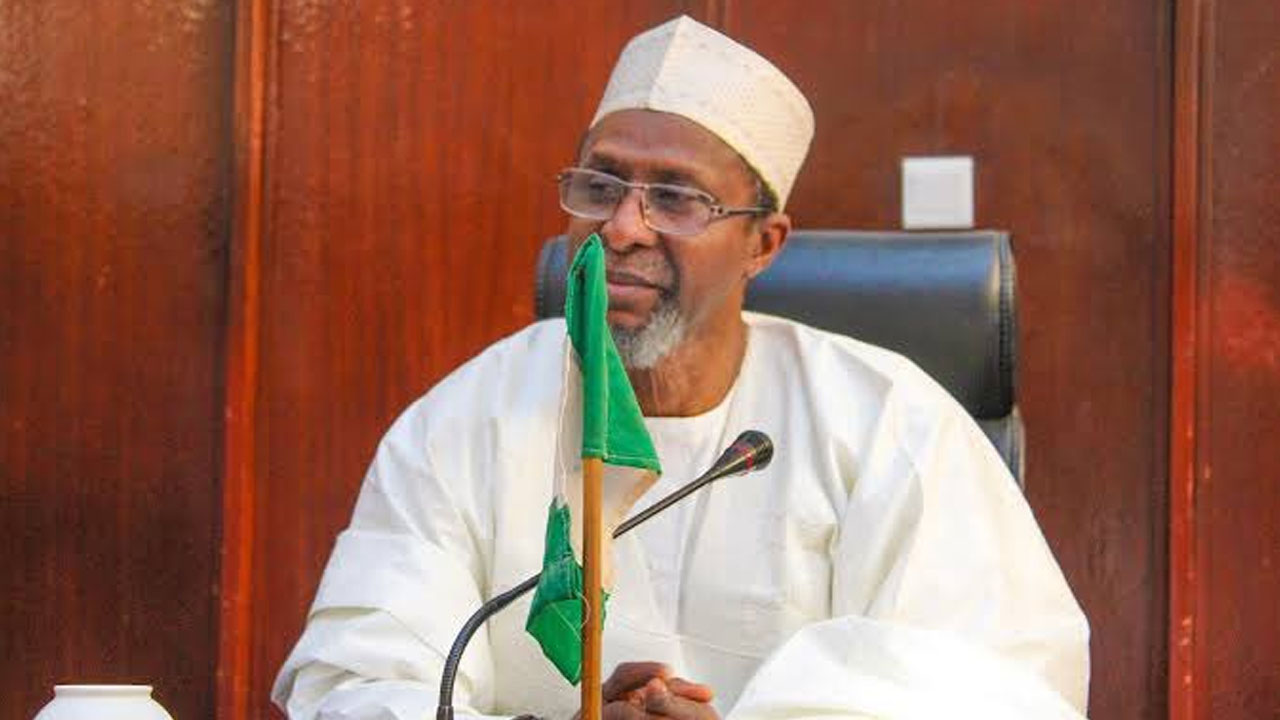FG seeks enforcement of laws, regulations to prevent land degradation
The Minister of Environment, Balarabe Abbas Lawal, has called on stakeholders and agencies to join hands with the ministry to strengthen the enforcement of environmental laws and regulations to prevent further degradation of Nigeria’s land resources. The minister made the call at an event to mark the 2024 World Environment Day in Abuja on Wednesday […]

balarabe abbas lawal 1
The Minister of Environment, Balarabe Abbas Lawal, has called on stakeholders and agencies to join hands with the ministry to strengthen the enforcement of environmental laws and regulations to prevent further degradation of Nigeria’s land resources.
The minister made the call at an event to mark the 2024 World Environment Day in Abuja on Wednesday with the theme: “Land Restoration, Desertification and Drought Resilience”.
Lawal urged them to join in promoting sustainable land use practices, enforcing land tenure rights and cracking down on illegal logging, deforestation, poaching and all other acts capable of destroying the natural environment.
He noted that Nigeria’s land resources were under immense pressure from deforestation, unsustainable land management practices and the adverse impacts of climate change.
He said, “We must invest in the rehabilitation and restoration of degraded landscapes through afforestation, reforestation and sustainable land management techniques that would enhance ecosystem services such as carbon sequestration and water filtration.
Enugu seals DisCo’s offices after notice to disconnect govt house over N1bn debt
Nyesom Wike ‘thanks’ Murtala Mohammed
“These challenges not only threaten the health and well-being of our people but also jeopardise the sustainability of our ecosystems and the prosperity of future generations. These factors also contribute to joblessness, social unrest and conflict in these areas. Therefore, we must collectively take decisive actions capable of reversing these trends and build a more sustainable future before it becomes too late.”
He, however, said that despite the challenges, Nigeria was making significant progress in addressing land degradation and desertification through initiatives such as the Great Green Wall Project (GGW), Nigeria Erosion and Watershed Management Project (NEWMAP) and Agro-Climatic Resilience in Semi-Arid Landscape (ACResal).
The minister also noted that globally there was the need to explore technologies that would drastically reduce Green House Gas (GHG) emissions, especially in the transport sector and other domestic appliances.
He further said, “We must endeavour to mainstream climate change adaptation and resilience-building measures into our national development plans and policies. This includes promoting climate-smart agriculture and providing support to vulnerable communities to adapt to changing environmental conditions.”
In his presentation, tagged, “Mobilising for Nature, For Our Future,” the Minister of State for Environment, Dr Iziaq Adekunle Salako, said Nature-Based Solutions (NBS) were gaining prominence and relevance in addressing environmental challenges in a way that protected the wellbeing of all creatures on planet earth and conserved biodiversity.
He said, “NBS is a vital tool for tackling climate change, nature and biodiversity loss, pollution and waste. It is a cost-effective pathway to our drive for generations’ restoration.”
Salako explained that the NBS framework came against the background of dangerous “decline in nature threatening the survival of one million species and impacting the lives of billions of people worldwide.”
